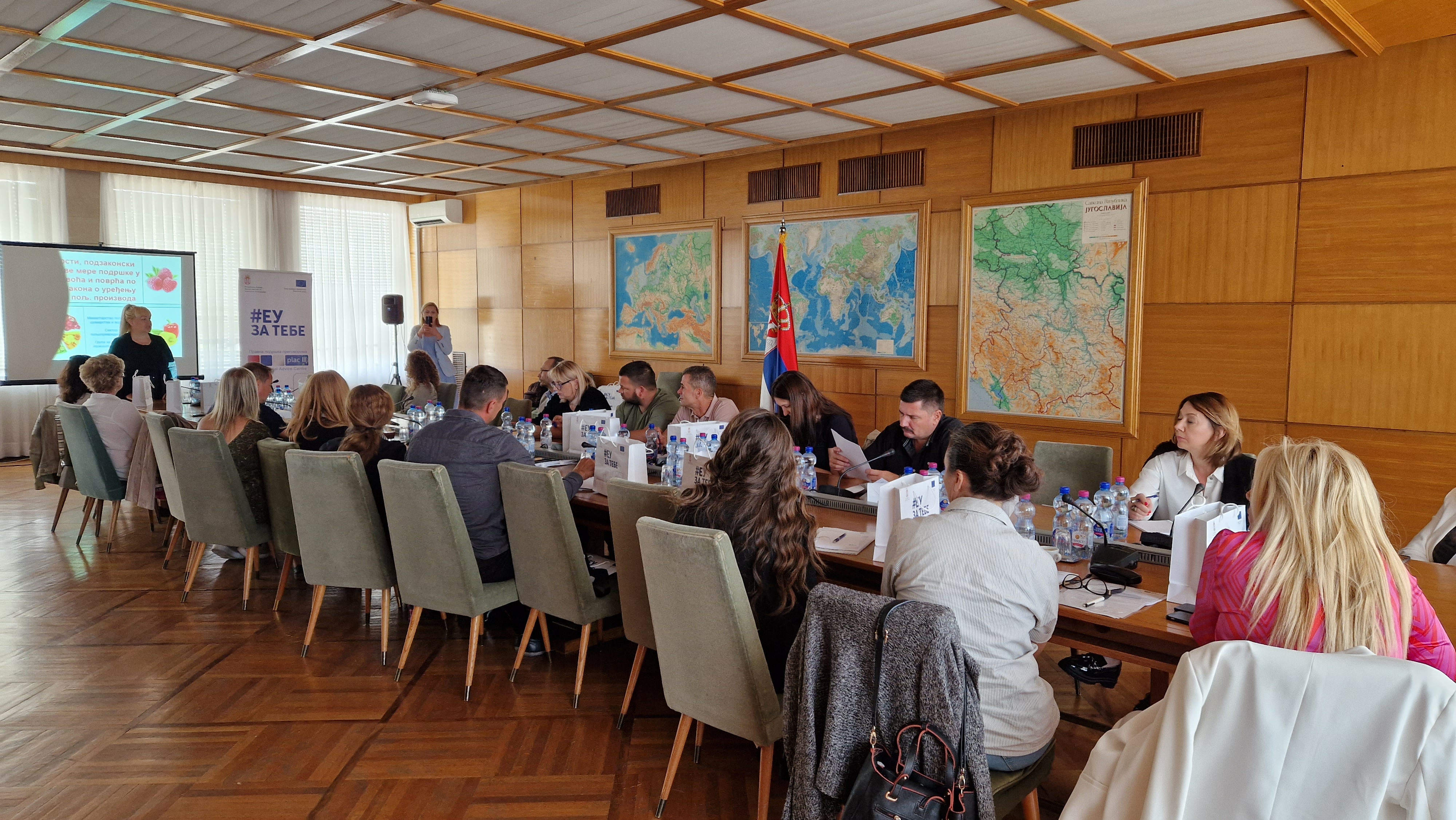The draft of the national programme of measures to support the improvement of eating habits of children and youth in the fruit and vegetable sector, as well as the rulebook for implementing the measures, were prepared with the support of the PLAC III project.
In this area of Negotiating Chapter 11, Regulation 1308/2013 establishing the common organisation of the markets in agricultural products, governs aid schemes intended to improve the distribution of agricultural products and improve children's eating habits. It is aimed at children who regularly attend nurseries, preschools or primary or secondary-level educational establishments which are administered or recognised by the competent authorities of Member States. Regulation 2016/791 amended Regulation 1308/2013 as regards the aid scheme for the supply of fruit and vegetables, bananas and milk in educational establishments. Commission Delegated Regulation 2017/40 lays down rules supplementing Regulation 1308/2013 as regards Union aid for the supply and distribution of fruit and vegetables, processed fruit and vegetable products (‘school fruit and vegetables’). As a result, the Union aid may be granted for the supply of school fruit and vegetables and school milk, and to finance accompanying educational measures and related costs. As a condition for its participation in the school scheme, a Member State must draw up a strategy for the implementation of the scheme at a national or regional level.
Serbia adopted the Law on Organisation of Agricultural and Food Products Market (the "Official Gazette of the RS", No. 67/2021) in July 2021. The Law’s aim is to create conditions for the adoption of selected measures of market regulation and gradual alignment with EU Regulation No 1308/2013. Serbia has yet to align its national legislation with the school fruit and vegetable scheme prescribed by Regulation 2016/791 and Commission Delegated Regulation 2017/40.
The PLAC III project has provided support to the Ministry of Agriculture, Forestry and Water Management, which is responsible for proposing a legislation regulating the market for all agricultural products. Project expert Andreja Martonja Hitrec has worked on the development of a national strategy (programme) for the implementation of the aid scheme for the supply of schools with fruits, vegetables and fresh products from the banana sector in accordance with the requirements of Regulation 1308/2013, as well as on the draft by-law for the implementation of the scheme.
At a workshop held on 24 October 2023, the project expert presented the School Fruit and Vegetable Programme, which is a set of support measures for improving the eating habits of children and youth in the fruit and vegetable sectors and their products. Martonja Hitrec cited data from the Institute for Public Health of Serbia "Dr. Milan Jovanović Batut" from 2019, who say that every other child between the ages of 5 and 14 in Serbia consumed fruits and vegetables daily, while other children ate them insufficiently or never. The programme envisages the shared competence of different ministries: the Ministry of Agriculture approves the applicant for support for the delivery of fruit and vegetables, allocates support, and controls the applicant. The Ministry of Health approves the applicant for support for monitoring and evaluation in the programme and confirms the list of eligible products, while the Ministry of Education approves the list of schools and the number of students participating in the program. All three ministries are in charge of raising public awareness, said the expert and showed an example of the implementation of the similar programme in Croatia.
The programme also defines which costs are acceptable within the measures envisaged, as well as the criteria for product selection. The rulebook for the implementation of the programme, whose draft was presented by Martonja Hitrec, envisages as a target group children and youth in kindergartens, primary and secondary schools, who would receive a meal of 100 to 150 grams daily. Implementing period covers two school years - from 1 August of the current year to 31 July of the following year.




